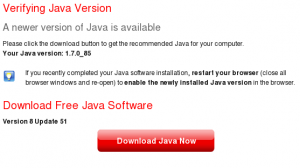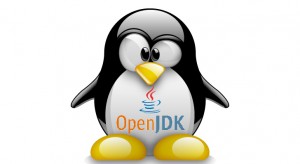 Finally! IcedTea 3.0.0 has been released and it compiles OpenJDK 8u77.
Finally! IcedTea 3.0.0 has been released and it compiles OpenJDK 8u77.
Java 8 has been available for considerable time, but I have been waiting for icedtea to support it before creating packages. According to release maintainer Andrew Hughes the main cause for this delay was having to start from scratch due to the new build system and basically lack of time.
I want to use IcedTea as a “build harness” for OpenJDK because it makes openjdk interoperate with the free icedtea-web browser plugin and adds support for Java Virtual Machines for other architectures than just x86 and x86_64 (CACAO and JamVM in addition to Hotspot). Note that in this initial release of the icedtea-built OpenJDK, the alternative Java VMs are crash-prone – only Hotspot works properly. This means that currently OpenJDK for the ARM platform will be pretty slow because Hotspot is a zero-assembler VM.
So, Slackers can now upgrade their machines to OpenJDK 8 “Update 77 Build 03“. The Slackware packages are openjdk-8u77_b03 and openjre-8u77_b03. Get them from a mirror location below.
No security fixes and CVE‘s to report this time, since this is a first release. An icedtea-3.0.1 release with security fixes is expected in two weeks.
Java 7
For those of you who are not ready to migrate to Java 8, I have renamed the previous openjdk/openjre 7 packages to “openjdk7” and “openjre7”. Please use openjdk7 instead of openjdk (likewise, use openjre7 instead of openjre) and be aware that the Java 7 and Java 8 packages (e.g. openjdk7 and openjdk) can not co-exist on your computer because they use the same installation directory. If you think that is an issue and you want – or need – to have both installed simultaneously, let me know in a comment to this article.
Note about usage:
Remember that I release packages for the JRE (runtime environment) and the JDK (development kit) simultaneously, but you only need to install one of the two. The JRE is sufficient if you only want to run Java programs (including Java web plugins). Only in case where you’d want to develop Java programs and need a Java compiler, you are in need of the JDK package.
The Java package (openjre as well as openjdk) has one dependency: rhino provides JavaScript support for OpenJDK. Rhino used to be an external dependency but since OpenJDK 8 it is internalized through the “nashorn” library.
Optionally: If you want to use Java in a web browser then you’ll have to install my icedtea-web package too. While Oracle’s JDK contains a browser plugin, that one is closed-source and therefore Icedtea offers an open source variant which does a decent job. Note that icedtea-web is a NPAPI plugin – this prevents use of Java in Chrome & Chromium because those browsers only support PPAPI plugins, but you’ll be OK with all Mozilla [-compatible] browsers of course.
Download locations:
- http://www.slackware.com/~alien/slackbuilds/openjdk/
- http://bear.alienbase.nl/mirrors/people/alien/slackbuilds/openjdk/ (rsync URI: rsync://bear.alienbase.nl/mirrors/people/alien/slackbuilds/openjdk/)
- … and more mirrors.
Have fun! Eric


Recent comments